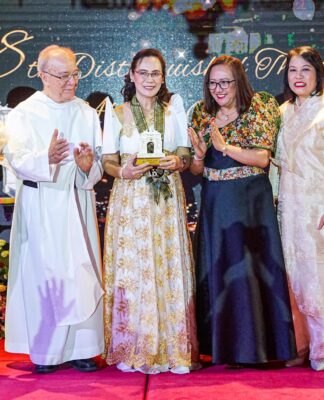 IN HIS book “Asian Power and Politics,” the late Chinese political analyst Lucian Pye discussed the development of the political culture of the People’s Republic of China, which seems to be comparable with the culture I have learned to live with in the Special Reports section of the Varsitarian.
IN HIS book “Asian Power and Politics,” the late Chinese political analyst Lucian Pye discussed the development of the political culture of the People’s Republic of China, which seems to be comparable with the culture I have learned to live with in the Special Reports section of the Varsitarian.
The impact wrought by Western contacts and the political turmoil at the start of the 20th century provided China the impetus in building a more competent and stable political culture. Thus, through many years of revolutions and economic reforms, and in spite of foreign criticisms, China’s foreign policy is anchored on a strong consciousness of its history.
As the investigatory arm of the Varsitarian, the Special Reports section seeks to provide the Thomasian community with fearless, non-biased, and timely reportage of special issues. However, the section is always faced with challenges particularly when insufficient data are acquired due to uncooperative sources and other problems. But despite the travails, the section’s writers have learned to turn problems into opportunities in order to come up with critical reportage on sensitive issues.
Moreover, the section’s respect for its superiors and editors remains vital just as China’s filial piety from its Confucian philosophy remains a strong characteristic of cohesive Chinese society. Hence, Confucianism became an integral part of the Chinese traditional and contemporary guiding principles of governance, which resulted in the present economic progress and political stability of China.
According to Pye, it is not wise to question the superior’s conduct — “the subordinate must instead ponder on deporting themselves according to the rules of ethics they have been taught in the hope that their commendable conduct will shelter them from the wrath of parental authority.”
The Special Reports section has always been very patient with its uncooperative sources and critical superiors regardless of ideological and personal differences. The section’s writers have also viewed their filial piety as a significant manifestation of their dedication and loyalty to the student publication.
China’s story of endurance is very different from any other civilization the world has heard. Likewise, the Special Reports writer must not only be good in written communication; but also be independent, dynamic, patient, and versatile.
For this academic year, I am tasked to lead a new section that is very far from the nerve-wracking pressure of the Special Reports section. But no matter how long or different the mile I am currently running in may be, I would still want to reach the finish line with the people I started with here in the Varsitarian — my Special Reports team. I am very thankful that those two years of being overworked and undercompensated, as well as receiving some flak, have paid off in building my endurance when it comes to life’s challenges.















